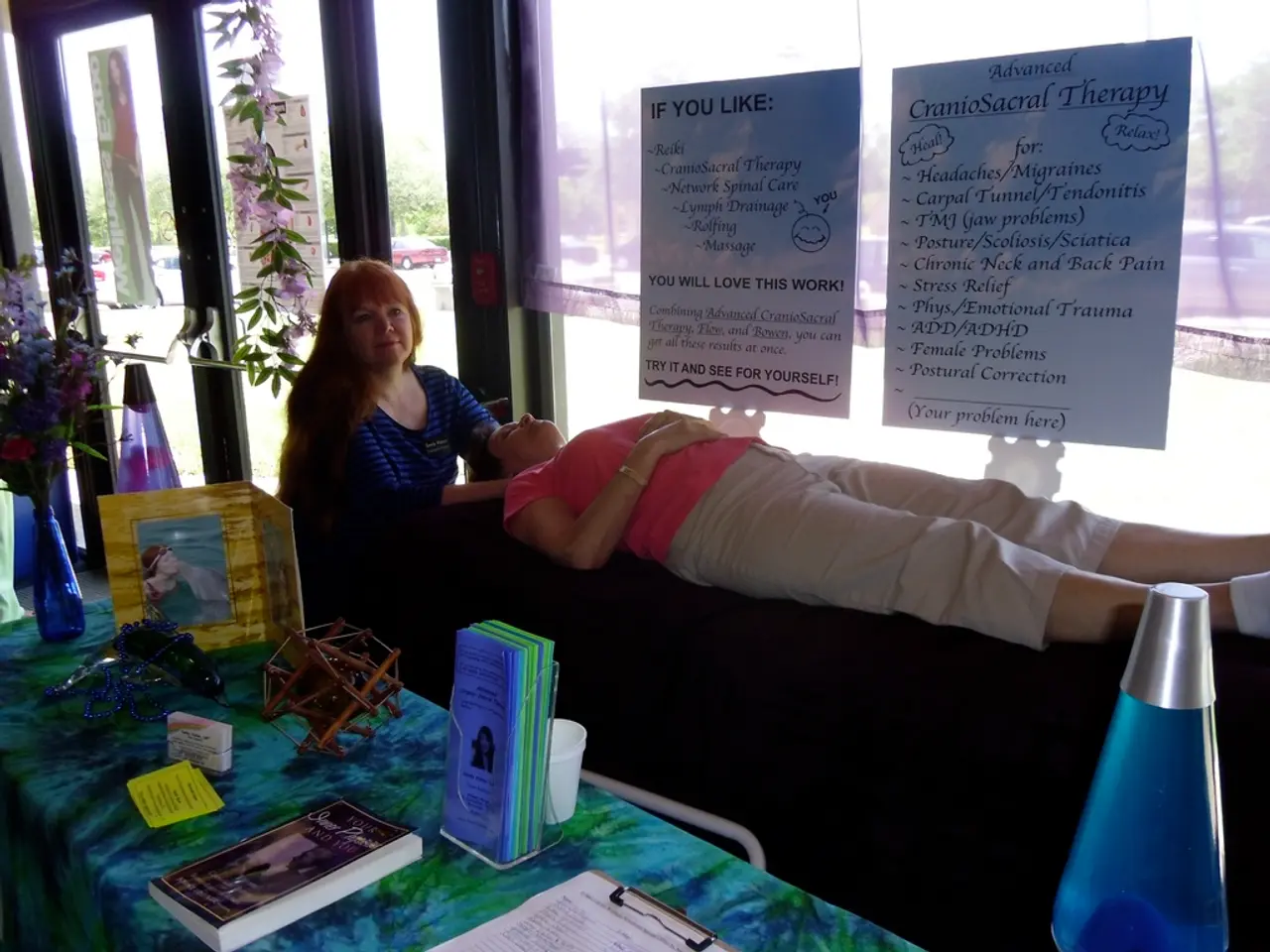"Exploring the Link Between Breast Cancer and Fatigue: Underlying Reasons and Strategies for Tackling Exhaustion"
Breast cancer is a challenging journey, and fatigue is one of the most common side effects that patients face during and after treatment. This article aims to shed light on the causes of breast cancer fatigue and provide strategies for its management.
Causes of Breast Cancer Fatigue
Breast cancer fatigue is a multifaceted issue, stemming from various factors related to the cancer itself, its treatment, and associated conditions.
- Cancer-related metabolic effects: Breast cancer cells consume large amounts of glucose and nutrients for proliferation, depriving normal cells and leading to fatigue.
- Inflammation: Persistent fatigue is often linked to inflammatory markers such as TGF-β and eotaxin, associated with immune function, stress, and mood changes. Chronic inflammation may mediate ongoing fatigue even after treatment.
- Cancer treatments: Chemotherapy, radiation, hormone therapy, and other medications can cause fatigue as a side effect, partly through effects on the bone marrow, hormonal changes, or general systemic stress on the body.
- Other medical and psychological causes: Fatigue can be exacerbated by malnutrition, infections, anemia, thyroid dysfunction, anxiety, and depression often seen in cancer patients.
Management Strategies
Addressing breast cancer fatigue requires a multidisciplinary approach.
- Physical activity: Regular, moderate exercise has been shown to improve energy levels and reduce fatigue in breast cancer survivors.
- Managing inflammation and medical conditions: Treating underlying conditions such as anemia, thyroid issues, or infections can help alleviate fatigue.
- Psychological support: Counseling or therapies addressing anxiety, depression, and sleep disturbances contribute to reducing fatigue.
- Symptom management: Proper hydration, nutrition, and controlled use of medications can help minimize side effects that worsen fatigue.
- Monitoring and follow-up: Regular assessment of fatigue levels and inflammatory markers can guide personalized interventions.
Complementary Treatments
Complementary treatments such as massage, acupuncture, reiki, yoga, tai chi, or biofeedback may help reduce fatigue associated with cancer treatment.
Prevalence and Impact
Between 80-100% of people with breast cancer develop fatigue. Severe cancer fatigue can interfere with everyday activities and reduce quality of life. Seeking support, such as help with everyday chores or professional counseling, can help conserve energy.
Persistent Fatigue
If symptoms like inability to get out of bed, extreme weakness, difficulty sleeping, lack of motivation, problems with concentration, or if fatigue persists, it is essential to contact a doctor. Mental health issues can contribute to fatigue in people with breast cancer, and addressing these concerns can help manage fatigue effectively.
Outlook
The outlook for people with breast cancer-related fatigue may vary, but energy levels often improve a few months after completing cancer treatment. However, it may take several months for fatigue to completely resolve.
Conclusion
Breast cancer fatigue is a complex issue, but understanding its causes and employing effective management strategies can help patients navigate their cancer journey more comfortably. Talking with a cancer doctor can help determine the possible causes of fatigue and recommend ways to combat it, such as changing medications, nutritional counseling, or mental health support.
Breast cancer cells consume large amounts of glucose and nutrients for proliferation, depriving normal cells and leading to fatigue in persons. The inflammatory markers TGF-β and eotaxin, linked to immune function, stress, and mood changes, often contribute to persistent fatigue. Chemotherapy, radiation, hormone therapy, and other medications can also increase fatigue as a side effect. Other medical and psychological factors like malnutrition, infections, anemia, thyroid dysfunction, anxiety, and depression can exacerbate fatigue in cancer patients.
Regular exercise, managing underlying medical conditions, psychological support, symptom management, and follow-ups can help alleviate cancer fatigue. Complementary treatments like massage, acupuncture, reiki, yoga, tai chi, or biofeedback may reduce fatigue associated with cancer treatment. Severe breast cancer fatigue can interfere with everyday activities and reduce quality of life; seeking support can help conserve energy. If symptoms persist, contacting a doctor is essential as mental health issues can also contribute to fatigue in people with breast cancer.
Energy levels often improve a few months after completing cancer treatment, but it may take several months for fatigue to completely resolve. Understanding causes, applying effective management strategies, and talking with a cancer doctor can help patients navigate their cancer journey more comfortably.




